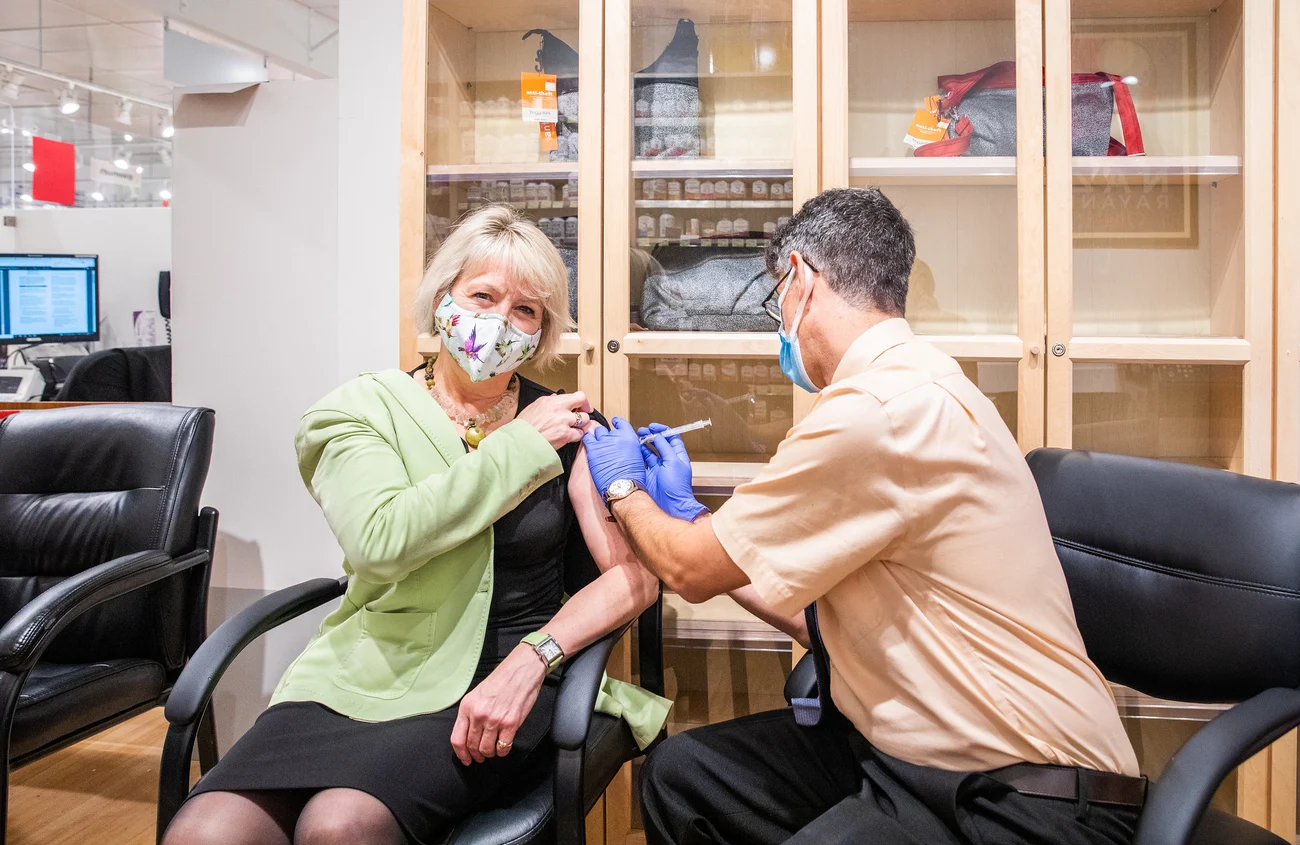Get your flu shot and booster, Doc Bonnie urges
British Columbia health officials are encouraging residents to get both flu shots and COVID-19 boosters this fall, while patients are being shuffled out of hospitals to make room ahead of possible twin surges of illness.
Provincial health officer Dr. Bonnie Henry (getting her flu shot above) told a news conference this week the impacts of COVID-19 are expected to be less severe than 2020 or 2021, while influenza will make a comeback.
“We’ve had very little, almost no influenza for the last couple of years. There’s a whole cohort of young people who’ve never been exposed to influenza,” she said.
Free flu shots will be available through pharmacies and community clinics beginning Oct. 11 for everyone six months and older.
Seniors are eligible for enhanced vaccines with added protection, including FluzoneHD for those in long-term care and assisted living facilities and Fluad for those living in the community.
Invitations continue to be issued for COVID-19 boosters and Henry encouraged the use of the bivalent vaccines that offer protection against variants including Omicron
“We have a good level of hybrid immunity right now but all of this decreases in time. The best thing we can do to protect ourselves is to get a booster,” she said.
Omicron has been the most dominant variant since the COVID-19 pandemic began and is expected to remain so over the next several months, Henry said.
COVID-19 hospitalization and death-rate data suggest immunization programs are working, she added.
When the Delta variant was dominant, the “vast majority” of people in hospital with positive COVID-19 tests were admitted because of the virus. Now, about half of those with COVID-19 in hospital were admitted for unrelated reasons, Henry said, referring to data released Wednesday.
Similarly, COVID-19 is the cause of death for less than half of people who die in hospital while positive with the virus, she said.
Seasonal influenza is characterized by a sudden onset of fever, cough (usually dry), headache, muscle and joint pain, severe malaise (feeling unwell), sore throat and a runny nose. The cough can be severe and can last two or more weeks. Most people recover from fever and other symptoms within a week without requiring medical attention. But influenza can cause severe illness or death especially in people at high risk.
Illnesses range from mild to severe and even death. Hospitalization and death occur mainly among high risk groups. Worldwide, these annual epidemics are estimated to result in about three to five million cases of severe illness, and about 290,000 to 650,000 respiratory deaths.
In industrialized countries most deaths associated with influenza occur among people age 65 or older. Epidemics can result in high levels of worker/school absenteeism and productivity losses. Clinics and hospitals can be overwhelmed during peak illness periods.

